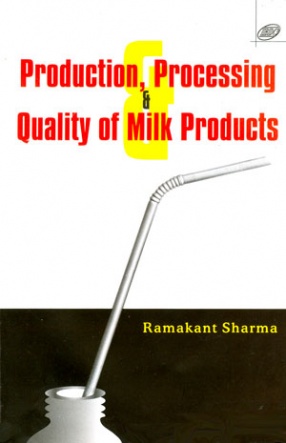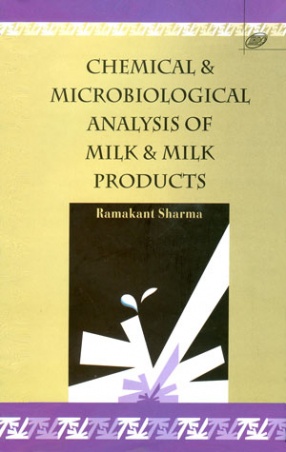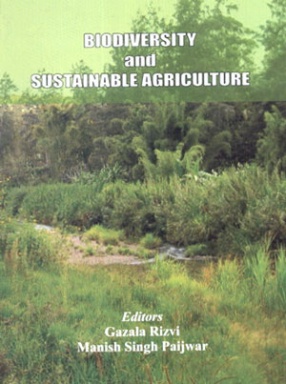The Indian Dairy Industry has made rapid progress since Independence A large number of modern milk plants and product factories have since been established. These organized dairies have been successfully engaged in the routine commercial production of pasteurized milk and various western and Indian dairy products. Most of the supervisory and technical personnel in these dairies have had their education in this country, although a few have been trained abroad as well. The author is interested to share his knowledge of dairy technology with many of these persons i.e. consumers, producers, graduate and post graduate students of food technology, microbiology, dairy technology, doctors, and research scholars in the interest of our business and for the safety of our consumers, it is essential to aware regarding food safety standards. The tern quality covers physical, chemical, microbiological and safety aspects of a product. A poor quality food product will have poor market value, short shelf life and could also be health hazard to consumers. In most of the developed countries, the media, the consumers and the regulatory bodies have forced the producers and the suppliers to comply with the prescribed food safety standards. Whereas in India, while there are reasonably good rules, observations of these rules and the implementation of quality control measures are usually inadequate, due to many reasons. Public awareness regarding quality is poor and regulations on quality are rarely followed. In the interest of our business and for the safety of our consumers, It is essential to maintain the appropriate quality of milk and milk products. A a member of the World Trade Organization, It has become obligatory for India to apply sanitary and phytosanitary measures while producing, processing and marketing milk and milk products and abide with the guidelines prescribed by the Codex Alimentarious Commission. This is necessary if we want to participate in the international tarde of milk and milk products for ensuring better returns to our farmer members. The United Nations recommends to the governments, all over the world to adopt the standards set up the Codex Alimentarious as the reference point for consumer protection, with regard to food. By harmonizing the food laws and by adopting internationally agreed standards, global commerce improves and the trade barriers diminisn gradually. Through harmonization free movement of goods amongst the countries is achieved, to the benefit of the farmers and the subsequent reduction of hunger and poverty. Several international firms have started importing milk into India and have even set up their plants here. We can not prevent them from doing so. Because of the WTO agreement. In order to safeguard the existing market and expand the business of the cooperative dairy sector, it is essential to produce superior quality products that are safe for consumers. In order to fulfill the information appropriate to producers, consumers and milk processors, the book has been prepared. I shall welcome the comments and criticism from readers to further improve the book. There are 40 chapters and by reading this book, I hope the reader, besides basic concepts, will also gain an over view of the current status of many.
Chemical & Microbiological Analysis of Milk & Milk Products
The Indian Dairy Industry ...
$39.60
$44.00






There are no reviews yet.